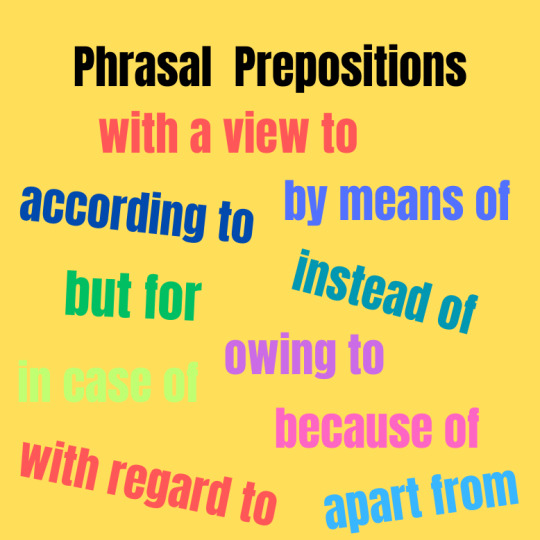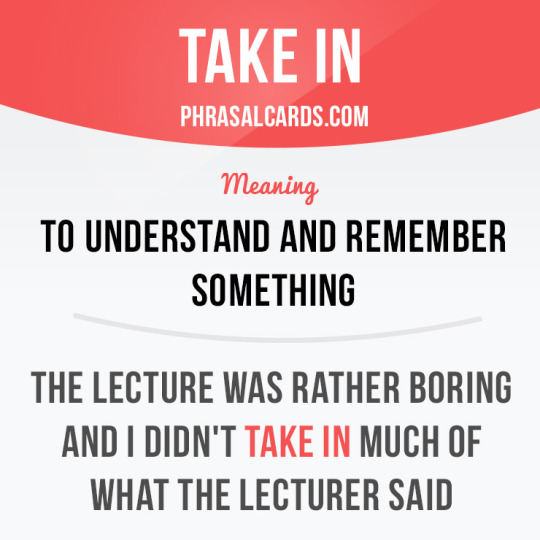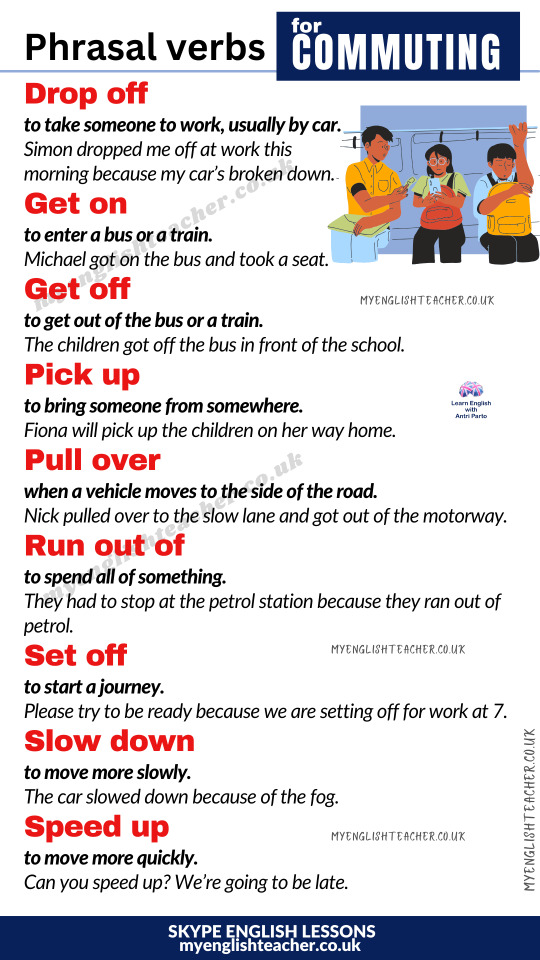#phrasal
Text
Preposition - "Up"

Preposition “Up”
Direction/Location:
Upward:
Moving or pointing in a higher position.
She looked up at the stars.
The cat climbed up the tree.
Towards a Higher Place:
When going to a place of higher elevation.
We hiked up the mountain.
Can you drive up to the summit?
These are some of the most common meanings of the preposition up in English, and there can be additional nuances depending on the context in which it is used.
Up with numbers:
Up can be used with numbers and amounts to indicate an approximation or an increase.
Here are some examples:
There were up to 50 people at the event.
This suggests that there were approximately 50 people at the event, but not necessarily exactly 50.
The cost of the project could be up to $10,000.
This implies that the project's cost may reach as high as $10,000, but it could be less.
The temperature is expected to rise up to 90 degrees Fahrenheit this week.
This means that the temperature may reach a maximum of 90 degrees Fahrenheit at some point during the week.
The package contains up to 20 individually wrapped chocolates.
This indicates that there are approximately 20 chocolates in the package, but the actual number might be slightly less.
The bonus for sales performance can be up to 5% of your annual salary.
Employees can receive a bonus of approximately 5% of their salary, but it might be lower depending on their performance.
The flight delay could be up to two hours.
Passengers should prepare for a possible delay of around two hours, but it could be shorter.
The shelf can hold up to 30 pounds of weight.
The shelf is designed to support approximately 30 pounds, but exceeding this limit may cause damage.
The restaurant's wait time is up to 30 minutes during peak hours.
Diners may have to wait for around 30 minutes, but it could be shorter or longer depending on the crowd.
In these sentences, up to is used to convey an approximation or a maximum amount, indicating that the actual number or amount might vary within a certain range.
Up as an adjective:
The energy level is up in the office after the team's success.
His confidence is up since he started his new job.
The enthusiasm is up among the students as they prepare for the school play.
Productivity is up in the factory since the new equipment was installed.
Sales are up this quarter, thanks to the new marketing campaign.
The attendance is up at the museum following the opening of a new exhibit.
Motivation is up in the gym with the arrival of a new personal trainer.
Interest is up in the stock market due to recent developments.
In these examples, to be + up is used to indicate that a particular quality or quantity is increased or elevated.
Up as a particle in phrasal verbs:
Up can function as a particle in phrasal verbs and expressions.
Here are some examples:
Wake up: I usually wake up at 7:00 AM on weekdays.
She woke up feeling refreshed and ready for the day.
Eat up: Please eat up your dinner; there are starving children in the world.
He ate up all the cookies in one sitting.
Clean up: We need to clean up the kitchen after cooking dinner.
The volunteers helped clean up the park after the event.
Catch up: I need to catch up on my reading; I've fallen behind.
Let's meet for coffee and catch up on each other's lives.
Give up: Don't give up on your dreams; keep working towards your goals.
He finally gave up smoking after years of trying.
Pick up: Can you pick up some groceries on your way home?
The children picked up seashells on the beach.
Show up: She promised to show up at the party, but she never did.
Will you be able to show up for the meeting tomorrow?
Shut up: Please shut up; I'm trying to concentrate.
He told them to shut up and listen.
Hurry up: We need to hurry up if we want to catch the train.
Hurry up and finish your homework before bedtime.
Dress up: They dressed up in their best outfits for the wedding.
Don't forget to dress up for the costume party.
Cheer up: I tried to cheer him up after he received the bad news.
Her friends are planning to visit her to cheer her up.
Make up (in the context of reconciling): They had a disagreement, but they made up the next day.
It's important to make up after an argument in a relationship.
These examples illustrate how up is used as a particle in various phrasal verbs, adding specific meanings or nuances to the verbs they modify.
Up as an adverb:
When you use the adverb up with verbs of motion, it often implies movement in a higher direction or above something.
Here are some examples:
I climbed up to reach the top shelf.
In this sentence, climbed up indicates moving in a higher direction to reach a higher point (the top shelf).
The birds flew up into the sky.
Flew up suggests that the birds moved vertically into the higher part of the sky.
She jumped up to catch the ball.
Jumped up implies that she leaped upward to catch the ball, indicating a motion towards a higher position.
The hot air balloon floated up above the trees.
Floated up means that the hot air balloon ascended vertically, going above the trees.
He swam up to the surface of the water for a breath of air.
Swam up indicates that he moved upwards through the water to reach the surface, which is above him.
The elevator took us up to the 10th floor.
Took up signifies the elevator's upward movement to reach the 10th floor, which is higher in the building.
They hiked up to enjoy the view from the peak.
Hiked up describes their journey upward along the mountain to reach the summit, which is the highest point.
The rocket blasted off and headed up into space.
Headed up indicates the rocket's upward trajectory into the expanse of space.
In these examples, up is used with verbs like climb, fly, jump, float, swim, take, hike, and head to convey the idea of motion in a higher direction or above something.
Adverb up with the verbs of motion
for proximity,closeness to something or somebody:
Come up: I saw a school of fish come up to the surface to catch the sunlight.
The submarine will come up from the depths of the ocean in a few minutes.
Run up: She decided to run up to the hill to get some exercise.
The children ran up to the front of the stage to see the magician up close.
Swim up: The adventurous snorkeler decided to swim up to the coral reef to explore its beauty.
The dolphins playfully swam up to the boat, delighting the passengers.
Sail up: The sailors prepared to sail up the river and reach the picturesque lakeside village.
As they sailed up the coast, they enjoyed breathtaking views of the coastline.
In these sentences, up is used with each of these verbs of motion to indicate the direction of movement or action.
Adverb up with some verbs for
the termination of the action:
When up is combined with certain verbs, it can indicate the termination or completion of work or tasks.
Here are some examples:
Finish up: I'll finish up this report and send it to you by the end of the day.
She finished up her work early so she could enjoy the evening.
Pack up: It's time to pack up the equipment and head home.
After the picnic, we'll need to pack up the picnic blankets and leftovers.
Drink up: The waiter advised us to drink up our water as it was a hot day.
He always drinks up his coffee before starting work.
Sell up: Due to financial difficulties, they had to sell up their family business.
The decision to sell up their property was a tough one.
Fill up: Don't forget to fill up the gas tank before going on a long road trip.
She filled up the sink with soapy water to do the dishes.
Eat up: The children were told to eat up their vegetables before having dessert.
He ate up all the pizza; there's none left.
Use up: We need to use up the old paint before opening the new cans.
She used up all her vacation days for the year.
Buy up: Investors started to buy up shares of the company after the positive earnings report.
During the sale, customers rushed to buy up discounted items.
Grow up: When I grow up, I want to be a firefighter.
He's grown up to be a responsible young adult.
These examples demonstrate how up combined with specific verbs can indicate the conclusion or termination of various tasks, projects, or activities.
Adverb up with the
other common verbs:
Here are examples of common verbs paired with the adverb up:
Fill up: Please fill up the gas tank before we hit the road.
I'll fill up the water pitcher for the meeting.
Get up: I need to get up early for work tomorrow.
She got up from her chair and stretched.
Give up: Don't give up on your dreams; keep trying.
He gave up his seat to the elderly passenger.
Look up: I'll look up that information in the encyclopedia.
She looked up at the stars in the night sky.
Make up (in the sense of inventing): She can make up stories on the spot.
I'll make up a funny excuse for being late.
Make up for (in the sense of compensating): I'll work extra hours to make up for the time I missed.
A kind gesture can make up for a mistake.
Pick up: Can you pick up some groceries on your way home?
He picked up the dropped papers from the floor.
Ring up: The cashier will ring up your items at the checkout.
I'll ring up the restaurant to make a reservation.
Call up: I'll call up my friend and invite her to the party.
He called up the company to inquire about job openings.
Stand up: Please stand up and introduce yourself to the class.
He stood up for his beliefs even when it was difficult.
Wake up: I usually wake up at 6:30 AM on weekdays.
The alarm clock will wake you up in the morning.
These examples illustrate how the adverb up is combined with various verbs to convey different actions and meanings in English.
Preposition up in word expressions:
Here are some word expressions and phrases with the preposition up:
Up to: Indicates a limit or extent.
You can choose anything up to $50 from the menu.
Up to down: Refers to a movement or transition from a higher position to a lower one.
The water flowed from up to down the hill.
Up and down: Indicates movement in both higher and lower directions or fluctuation.
She searched up and down the street for her lost keys.
Up to here: Refers to the current point or level.
I can tolerate your behavior up to here, but no more.
Up to you: Indicates that a decision or choice is left to the other person.
It's up to you whether we go to the movies or stay in.
Up to the present time: Refers to a situation or condition continuing until now.
Up to the present time, they have not received a response.
To come up to one's expectations: Means meeting or fulfilling someone's expectations.
Her performance truly came up to our expectations.
To make up one's mind: Means to decide or reach a conclusion.
I need more time to make up my mind about the job offer.
To be up at 8 o'clock: Indicates the time someone wakes up in the morning.
I have to be up at 8 o'clock for work.
The time's up: Indicates that a designated or allotted time has ended.
Sorry, but the time's up for submitting your assignment.
What's up? A casual greeting or inquiry about someone's well-being or current situation.
Hey, what's up? How have you been?
These expressions and phrases with up are used in various contexts to convey different meanings and nuances.
Preposition – “Up”
Preposition – “Towards”
Preposition – “To”
Preposition – “Through”
Preposition – “Inside”
Preposition – “Past”
Read the full article
#action#asadjective#asadverb#asparticle#closeness#direction#fortermination#higher#location#phrasal#place#preposition#proximity#theverbsofmotion#towards#up#with#withnumbers#withup#wordexpressions#words
1 note
·
View note
Text
Trio hotwife primer encuentro
Lily carter teen and sexy babe in threesome with facial first time
Gay boy cute porn movies Kellan rolls Ryan over and as Ryan is now on
Teen sucking old pervert
August Taylor gets Fucked hard In Pussy Hole
America teacher student gay porn stories xxx Jacques heads down on
bluffs run rv park at horseshoe casino council bluffs iowa
Footjob solejob
Chilena culona
Cute blonde shoplifter fucks for her freedom on CCTV
#bookends#T-number#abo#werewolf#protonotater#amphibians#Kitlope#Shree#wrongless#warrantableness#vasotocin#Melodee#dreary-eyed#farsightedness#naturize#fear-created#semi-indurate#archcorrupter#phrasal#autosensitization
0 notes
Text

Turn this shit into a snowclone RN
25 notes
·
View notes
Text


"Talk up" = promote someone or something enthusiastically.
⠀
Example: He talked his idea up with as many friends as he could.
⠀
Example: They talked up the tourist attractions to encourage more visitors.
⠀
Learn phrasal verbs in our app - https://onelink.to/7y3btw
#phrasal verbs#phrasal verb#phrasalverbs#english#english learning#english language#learn english#englishlearning#esl#verbs
16 notes
·
View notes
Text

Learn 5 phrasal verbs with FOLLOW
9 notes
·
View notes
Text
looking at my opened tabs whilst editing my ninjago fic is so funny bc it's like

I promise my brain is completely functional and I am capable of Remembering Stuff
#i don't need to fact-check everything five times bc i forgor#i don't need to check the definition of every other word just to be safe#i definitely don't have to google shit like phrasal verbs frequently#im fine this is fine why do you ask#also 'stealing' is a bit harsh it's more like. taking inspiration from my fav writers#just to be clear#ninjago
26 notes
·
View notes
Text
still thinking about how today the 50 years old professor said "that's so gender"
#everything in that sentence aside from gender was said in polish which made it sound even more bizzare when said by him#anyway a bit of context#there's a polish phrasal verb “na chłopski rozum” which is kinda like for common sense#he said that and hesitated because chłop means a guy (despite the word in this context meaning peasant not a guy) and said that it's#so gender#he meant that it's gendered while there should be a gender neutral version of this saying#but hdhdhs the whole thing was so unexpected it lagged my brain for solid 5 minutes#in general that guy's incredibly chaotic and at least once each class he says something that makes brain.exe stop working lol
13 notes
·
View notes
Text

YOU CAN DOWNLOAD THIS USEFUL TABLE IN PDF FORMAT HERE :
Today we're learning verbs, phrasal verbs, and phrases related to liking someone or something!
Whether you're FOND OF someone, KEEN ON something, or have a SOFT SPOT FOR a particular thing, there are so many ways to convey that you like something or someone. Check out the picture below for some useful example sentences!
#english verbs#phrasal verbs#c1 advanced#ielts#toeic#toefl#cambridge english#c2 proficiency#key word transformation#english language#cpe exam#advanced english grammar#english grammar#language learning#cae exam#apprendre l'anglais#imparare l'inglese#aprender inglés
6 notes
·
View notes
Text
I'll take a Cambridge Proficiency Exam in a week and im BEGGING for advice tips etc
#idk if english native speakers will be much help bc you dont really have to memorize rules right?#but if you do. feel free!!!#im looking for phrasal verbs! im looking for idioms! itll take anything#worst op ever
8 notes
·
View notes
Text
Currently my favorite English phrase:
“Let’s blow this popsicle stand!”
So at some point I decided to look this up and apparently it just means to… leave?? That’s it? But why tho? What does that have to do with blowing up a popsicle stand? Because the only thing I think about when someone says blow like that is making things go boom. What even is this phrase it’s so funny like- why?!?
#english#english phrases#phrases#phrasal verbs#I think#this is a shitpost#shitpost#i’m not funny#but English sure is#what even is this language#it’s so easy but it makes no fucking sense
4 notes
·
View notes
Text
Phrasal Prepositions

Phrasal Prepositions
Phrasal prepositions are combinations of verbs and prepositions that function as a single unit to convey a specific meaning.
Here are some common phrasal prepositions with examples:
According to: Used to indicate the source or reference of information.
According to the weather forecast, it will rain tomorrow.
Ahead of: In front of or before in time or position.
She arrived ahead of schedule.
Apart from: Except for or besides.
Apart from John, everyone else is coming to the party.
As to: Concerning or regarding.
I'm not sure as to his whereabouts.
As far as: To the extent or degree that.
As far as I know, the meeting is still on.
Because of: Due to or as a result of.
The game was canceled because of the rain.
But for: Except for or if it were not for.
But for your help, I would have failed.
By means of: Using or with the help of.
He fixed the machine by means of a simple tool.
In addition to: Besides or as well as.
In addition to English, she speaks Spanish fluently.
In front of: Located before or facing something.
The car parked in front of the house is mine.
In spite of: Despite or notwithstanding.
In spite of the difficulties, they completed the project on time.
In case of: In the event of or if it happens that.
In case of emergency, call 911.
As compared with/In comparison with: Used to show a contrast or comparison between two things.
His salary is low as compared with others in his field.
In conformity with: In agreement or accordance with.
The design is in conformity with the regulations.
In consequence of: As a result of.
In consequence of the storm, many trees were knocked down.
In front of: Located before or facing something.
The car parked in front of the house is mine.
Instead of: In place of or as a substitute for.
I had tea instead of coffee this morning.
In the event of: If something happens or in case.
In the event of a fire, use the emergency exits.
In view of: Taking into consideration or considering.
In view of recent developments, we need to reassess our plan.
On behalf of: As a representative of or in the interest of.
I am writing this letter on behalf of the committee.
On top of: On the upper surface of.
She found her keys on top of the dresser.
Out of: No longer in possession or availability of.
I'm out of coffee, so I need to buy more.
Owing to: Because of or on account of.
The delay was owing to heavy traffic.
Subject to: Depending on or contingent upon.
The sale is subject to approval by the board.
Thanks to: Because of or as a result of.
Thanks to your help, we finished the project early.
Up to: In the direction of or as far as.
You can go up to the mountain peak.
With regard to: Concerning or in reference to.
With regard to your question, I think it's important to consider all options.
These are just a few examples of common phrasal prepositions. There are many more in the English language, and they are used to add nuance and detail to the relationships between words in sentences.
Phrasal Prepositions
Preposition – “Without”
Prepositions -“For”, “During”, “In”, and “Within” to compare
Preposition – “Within”
Prepositions “With” and “By” to compare
Preposition – “Towards”
Preposition – “Through”
Read the full article
0 notes
Text
Svenskaträning för den hugade
(Swedish practice for the willing)
I've been thinking of för, and therefore, here's some verbs with för to muse over. What's the difference between
(+ which of these isn't a verb?):
företag
företa sig
förta sig
ta för sig
ta sig för
bonus:
ta sig till
ta till sig
tillta
tilltag
2 notes
·
View notes
Text
I can be your hello kitty girlfriend I love punk music and anything that woofs and I have autism
#snowclone#phrasal template#cliche#see previous post#hello kitty#woof#autism#see prev post#shit post#shitpost
7 notes
·
View notes
Text


"Take in" = understand and remember something.
⠀
Example: The lecture was rather boring and I didn't take in much of what the lecturer said.
⠀
Example: I'm not sure how much of his explanation she took in.
⠀
Learn phrasal verbs in our app - https://onelink.to/7y3btw
#phrasal verbs#phrasal verb#phrasalverbs#english#english learning#english language#learn english#esl#verbs#toefl#toeic
13 notes
·
View notes
Text
11 Phrasal Verbs for Commuting
11 Phrasal Verbs for Commuting
Hello English learners. Welcome to a new lesson. We all commute. It means that we travel from home to school or work on a regular basis. Some people’s jobs involve more commuting while some people today work from home so they do not commute at all. We usually take a bus or a train although some commuters prefer going to work on foot or by bike. Whatever you do, in…

View On WordPress
#commuting#LearnEnglish#LearnEnglishOnline#phrasal verbs#phrasal verbs for commuting#SkypeEnglishLessons
8 notes
·
View notes
Text
Anyone who is in isc or even icse pls share your Preboard papers
2 notes
·
View notes